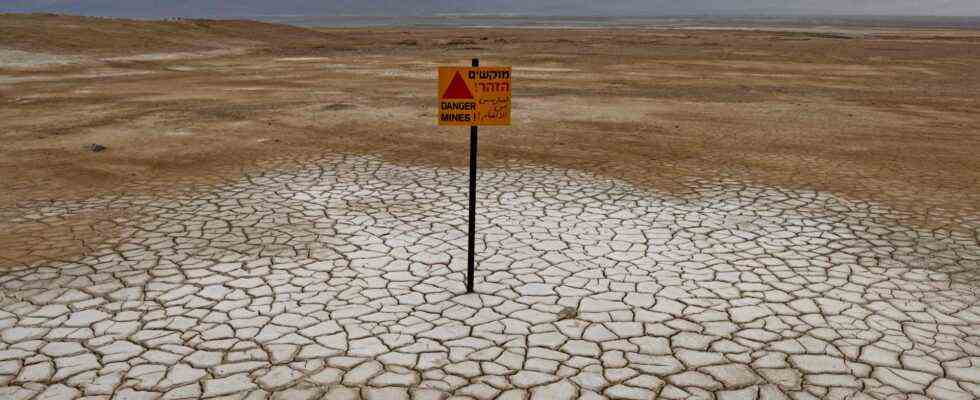Status: 10/28/2021 12:55 p.m.
The Middle East has been a politically fragile region for decades. Climate change is making things worse, Israeli researchers warn. Droughts and floods could lead to enormous refugee movements.
A few days ago, a representative of the Israeli state gave his own government a bad report: Israel was not adequately prepared for climate change. The emission of carbon dioxide has increased in the past few years, not decreased. In addition, politicians do not take the issue seriously enough in an international comparison.
At the last cabinet meeting, Israel’s Prime Minister Naftali Bennett resisted these impressions. “The climate crisis is one of the most important issues on the global agenda. And rightly so. This is about the lives of all of us, our children and our grandchildren,” he said.
“Threats Are Growing”
One phrase by the Israeli Prime Minister stood out: Climate change is now treated by Israel as a national security issue. With this, Israel is more openly admitting what researchers have been warning about for years: that climate change could exacerbate the conflicts in the Middle East.
Shira Efron is also worried. She conducts research at the Israel National Security Institute (INSS). “The Middle East is really a hotspot for climate change. Temperatures here are rising even faster than in a global comparison,” she says. It is one of the driest regions in the world. At the same time, the Middle East already stands for conflicts and fragile states. “Climate change doesn’t just lead to new wars. But it increases threats. Every problem is made worse by climate change.”
“Egypt is very vulnerable”
Efron specializes in the relationship between climate crises and conflicts. And that has been around for a long time, says the researcher. Take Syria, for example: A drought at least favored the outbreak of the civil war there, she says. In other countries too, weather events could intensify conflicts.
The researcher Efron also looks at Egypt, with which Israel made peace in 1979 after several wars. “I really hope the forecasts don’t come true. But Egypt is very vulnerable,” she said. The Nile Delta could be flooded, and Alexandria could also be submerged in a few decades. There are also terrorist groups that are constantly threatening stability in Egypt. “All of this could lead to massive refugee movements. And where would people flee then?”
Walls on the borders
Among other things, to Israel, says the researcher. Israel has already built a fence on its border with Egypt to keep migrants away. But Efron is skeptical whether Israel can simply isolate itself from its neighbors in the face of the consequences of climate change. Sandstorms, for example, did not stop at walls and fences.
“We can already see that Israel has tried. It has built high walls and fences. On the border with Egypt, Jordan, partly with the Palestinians,” says Efron. Israel has also tried to isolate itself from Syria and Lebanon. “But that didn’t work. Neither borders nor walls stop climate change.”
The army remains vague
The Israeli army is now also giving the issue a higher priority. It is about possible external threats. But also about the equipment. Tanks, for example, were not designed for use in extremely high temperatures. Even now, Israeli soldiers can only train to a limited extent on very hot summer days.
“The army has started to prepare for possible changes. We have formed a unique team that develops strategies against the background of climate change,” said the Israeli army. The tour is not yet concrete.
Climate change as an opportunity?
However, it is already clear that the scenarios that have been developed are not exactly positive. The neighboring Gaza Strip is already overpopulated and there is a lack of clean drinking water. In a few decades, even more people will be living there – at significantly higher temperatures.
Researchers like the Israeli Efron hope that climate change is not only a risk, but also an opportunity. That the states in the Middle East work together and move closer together. The struggle for scarce water can lead to wars. But it doesn’t have to happen that way. Optimists hope countries will share their water with others. And that that ensures peace.

